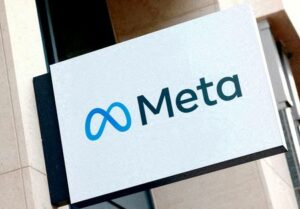By Aditya Soni
(Reuters) – Alphabet shares ended 5.3% higher on Thursday as Wall Street cheered the launch of Gemini, saying the new artificial intelligence model could help narrow the gap in a race with Microsoft-backed OpenAI.
Long considered a leader in AI research, Alphabet lost the spotlight when OpenAI’s ChatGPT swept the tech landscape upon its launch in November last year and allowed Microsoft to aggressively roll out AI-powered software to businesses.
Now, Gemini looks poised to boost Alphabet’s AI heft again.
The Google parent said the much-awaited AI system was faster than OpenAI’s latest model and can process different forms of media such as video, audio and text. It comes in three versions, each designed to use a different amount of processing power.
“Google is beginning to address investor concerns around generative AI innovation and the high cost of running GenAI models through the combination of Gemini’s different model sizes,” J.P. Morgan analysts said.
The company added over $80 billion to its market value. The warm reception contrasted with the nearly $100 billion selloff in Alphabet in February after its Bard chatbot shared inaccurate information in a promotional video and a company event failed to impress.
“Gemini’s release comes at an interesting point in time when OpenAI/ChatGPT users have been complaining about how updates to the GPT model family have potentially impacted the quality of its output,” Macquarie analysts wrote in a note.
“If Google is shipping a GPT-4-beating model, this could help gather user and developer momentum behind Google.”
The company has added some of the Gemini technology to its Bard chatbot, and plans to roll out its most advanced version of Gemini through Bard early next year.
A six-minute video on the model’s abilities showed it could recognize sleight-of-hand magic tricks and help people create art by offering ideas based on materials and their color.
MICROSOFT’S AI LEAD
Alphabet has so far trailed Microsoft in the race for AI-driven cloud revenue. In the September quarter, growth at Google Cloud slowed to a near three-year low, paling before the rebound seen at Microsoft Azure.
To drive sales of its AI-based offerings, Microsoft has targeted big businesses that already use its software services, while Google has turned to startups, which analysts say have curtailed spending in an uncertain economy.
Shares in both the companies have rallied around 50% this year, part of a broader AI-fueled rally in big technology stocks that has driven much of the Nasdaq’s gains.
Microsoft currently trades at 30.68 times its 12-month forward earnings estimates, compared with the Google parent’s 19.59.
“Some criticism might be that Google is late to the AI party. (But) they want to get it right and they also obviously see the huge opportunity,” said Ken Mahoney, CEO of Mahoney Asset Management in New Jersey.
“There’s different ways to grow your company but one of the best ways is with the same customer base by giving them more solutions or more offerings and that’s what I believe this (Gemini) does for Google.”
(Reporting by Aditya Soni and Amruta Khanderkar in Bengaluru; Editing by Devika Syamnath)





